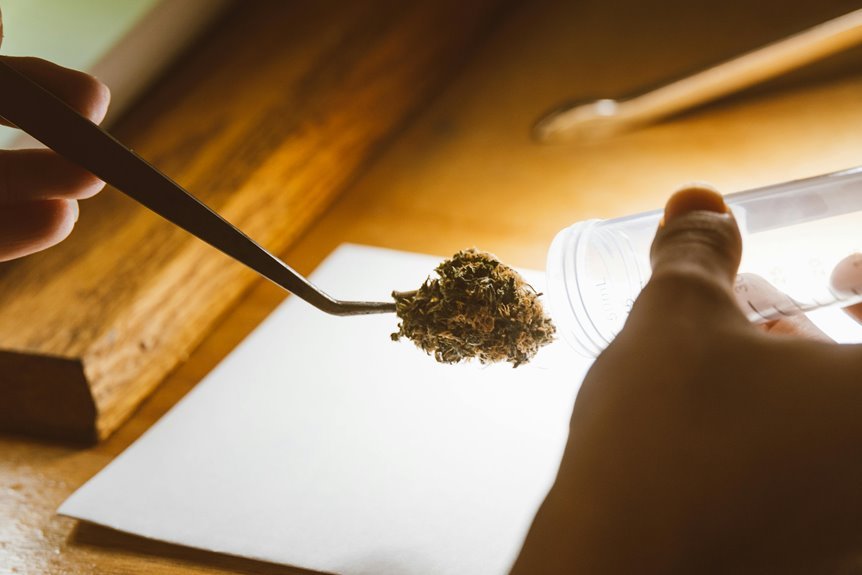Does Cbd Cream Show in a Drug Test

The use of CBD cream raises important questions regarding drug testing. While topical applications typically have low systemic absorption, the presence of trace THC in some products can pose a risk for detection. Understanding how drug tests identify THC and the nuances of different CBD formulations is crucial for users. This consideration becomes increasingly relevant for those subject to regular testing. What steps can one take to ensure safety and compliance in their choice of CBD products?
Understanding CBD and THC: The Key Differences
Although both CBD (cannabidiol) and THC (tetrahydrocannabinol) are compounds derived from the cannabis plant, they possess distinct properties and effects.
CBD benefits include anti-inflammatory and analgesic properties, making it popular for therapeutic uses without psychoactive effects.
Conversely, THC effects can lead to euphoria and altered sensory perception, contributing to its recreational appeal.
Understanding these differences is crucial for informed choices regarding cannabis use.
How Drug Tests Detect THC
Understanding the differences between CBD and THC is important, particularly when considering drug testing.
Drug test types primarily focus on detecting THC metabolites, which are byproducts of THC breakdown in the body. These metabolites remain detectable in urine, blood, or saliva tests for varying durations, depending on usage frequency and individual metabolism.
Awareness of these factors can empower individuals in their personal choices.
The Impact of Topical CBD Creams on Drug Testing
How do topical CBD creams influence the likelihood of a positive drug test?
Topical applications of CBD typically have minimal systemic absorption, limiting their impact on drug metabolism.
However, products containing even trace amounts of THC may still pose a risk.
Users should be aware that while unlikely, topical CBD can potentially lead to detectable levels of THC in drug tests.
Tips for Choosing CBD Products With Low THC Content
Selecting CBD products with low THC content is crucial for individuals concerned about drug testing.
To ensure minimal THC levels, consumers should opt for CBD isolate or broad-spectrum CBD product types, as these contain little to no THC.
Additionally, verifying third-party lab results can provide assurance regarding the cannabinoid composition, allowing users to make informed choices while safeguarding their freedom from potential drug test complications.
Conclusion
In the vast landscape of cannabis products, navigating the nuances of CBD and THC is akin to walking a tightrope. While topical CBD creams generally avoid the spotlight of drug tests, the shadow of trace THC looms for some. Choosing products wisely—like a painter selecting only the purest colors—can safeguard against unexpected results. By prioritizing CBD isolate or broad-spectrum options and scrutinizing lab results, users can confidently enjoy the benefits of CBD without fear of detection.





